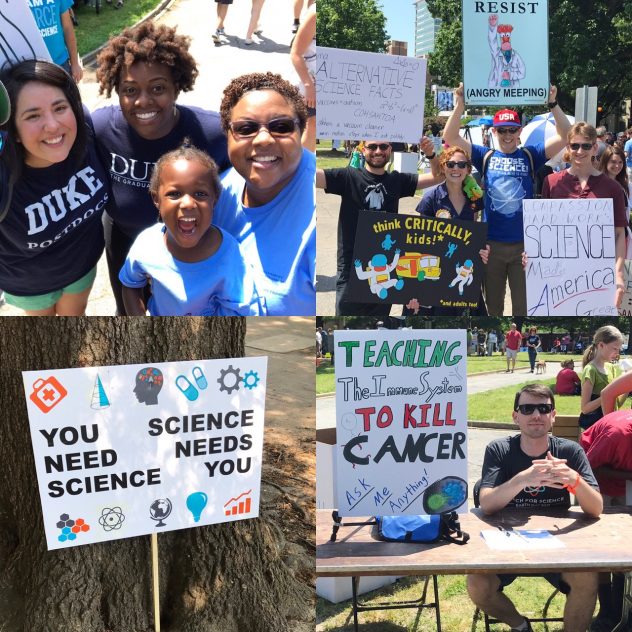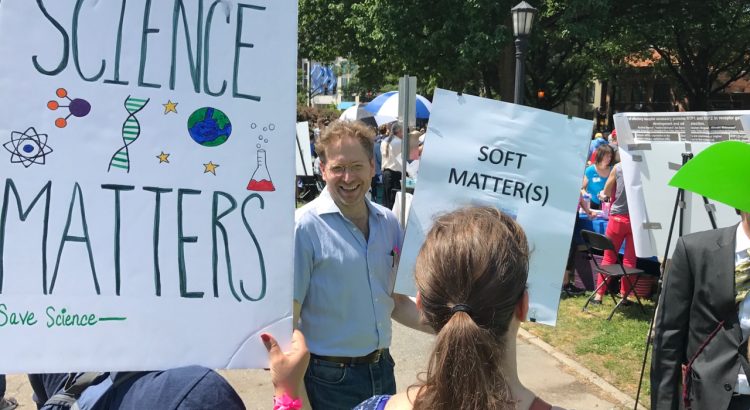Podcast: Play in new window | Download
Subscribe: Spotify | Email | TuneIn | RSS
We weren’t sure what to expect when scientists planned a protest march on Washington, D.C. and other world capitals.
Would this politicize the scientific process? Would enough scientists show up to make an impact? And what should happen after the march to continue the momentum?
Ms. Frizzle Supports Science
To answer these questions and others, Josh took to the streets at our local march in Raleigh, NC. He wanted to hear from other scientists first-hand about what motivated them to leave the lab and march on the capital.
 The atmosphere was festive, and the crowd was passionate. In this episode, you’ll hear directly from the the marchers in their own words.
The atmosphere was festive, and the crowd was passionate. In this episode, you’ll hear directly from the the marchers in their own words.
Some came out of concern over environmental policy. Some were advocating fact-based governance. And some came to show their kids that science matters and it’s worth fighting for.
As this episode posts, the organizers of the science march are mid-way through a “Week of Action” to continue the work begun at the march. Even if you couldn’t join a march on April 22nd, there’s time to get involved.
Join the conversation – email us your photos or stories from the march YOU attended, or tweet them to @hellophd. We’ll share as many as we can on this page or in a future episode.
Science with a Stink
Also in this episode, Josh shares some recent research on the physics of defecation. Yup, you read that right, so think twice before tuning in…
If you made it this far, you might be interested to read more about the Bristol Stool Scale or to see the equation that explains it all:
In better news, we also sampled the Left Hand Brewing Milk Stout Nitro. It’s dark brown and smooth and you can finish it in 12.6 seconds, so it’s almost exactly like… oh… never mind.




